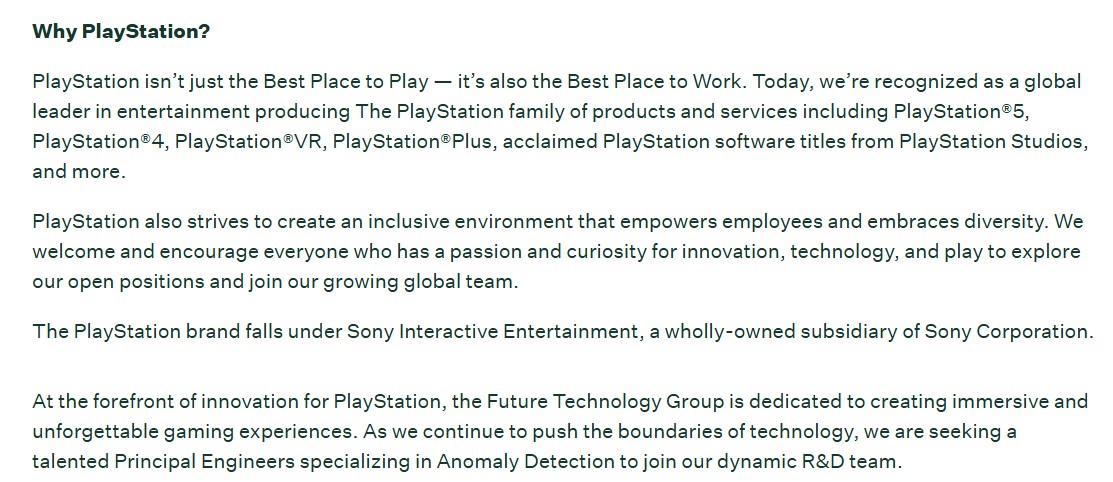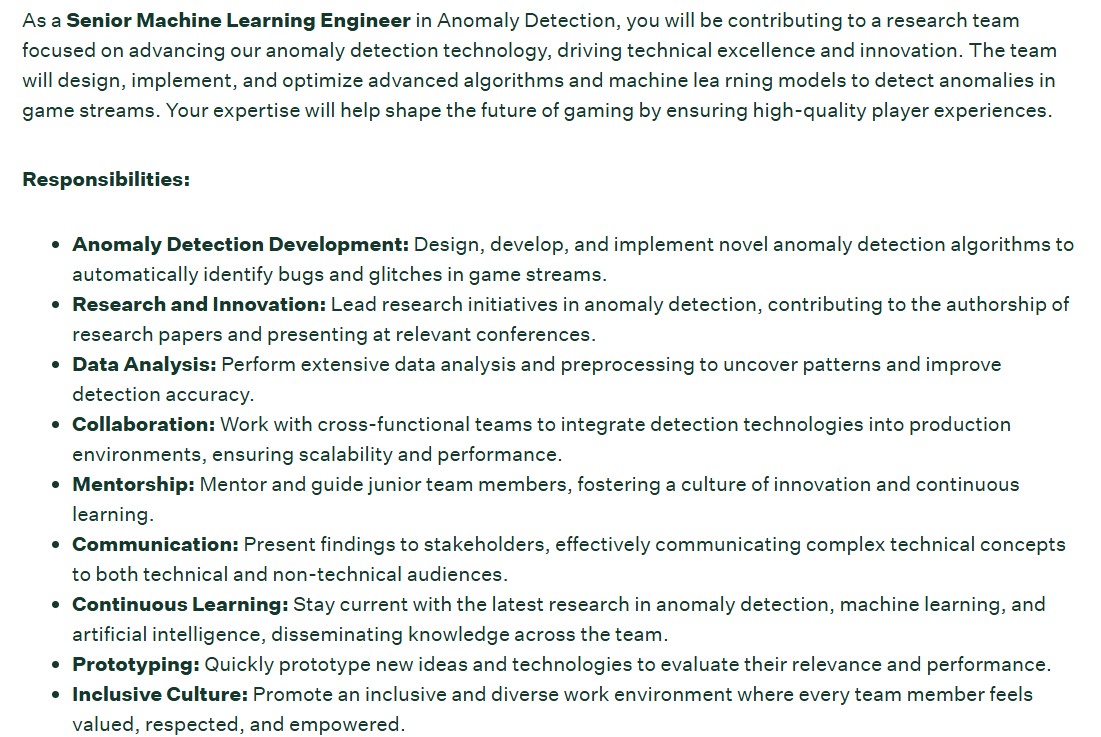- Sony is hiring a senior machine learning engineer to auto-detect bugs and glitches during game development.
- The system will be used to help shape the future of gaming by creating bug-free and high-quality games.
- Some gamers worry that the AI system might replace human QA testers, making it quite controversial.
Sony has been at the forefront of pushing the frontiers of technology regarding AAA game development. As such, most of its innovative goals have first appeared as job listings to secure the best expertise and talent. The company is also leaning heavily into the upcoming age of AI.
We have spotted job listings for a Senior Machine Learning Engineer and a Staff Machine Learning Engineer, suggesting that Sony is working on developing an AI system to auto-detect bugs and glitches in game streams.
Why it matters: Sony’s desire to create an AI bug detection system for games is controversial. QA game testers might lose their jobs if AI completely takes over; however, the system might prove to be highly effective if used correctly.

The listings mention that the system will revolutionize the QA processes and make them more effective and efficient. Sony wants to ‘shape the future of gaming‘ by creating glitch-free, high-quality experiences using the advanced AI bug-detecting system.
We are on a mission to revolutionize our QA processes by developing cutting-edge technologies that automatically detect bugs and glitches in game streams.
These anomaly-detecting algorithms will be employed during the QA process of game development to find glitches that could normally escape the human eye. The employees will work with different teams to integrate these AI systems effectively into game development.

Sony might completely automate glitch detection in game development, which currently requires much human experience. However, some think it is a controversial move, as AI might snatch away these jobs from QA testers.
Do you think Sony’s focus on these AI technologies to automate the bug-hunting process would reduce the need for human game testers in the future? Let us know your thoughts in the comments below, or join the discussion on the official Tech4Gamers forum.
Thank you! Please share your positive feedback. 🔋
How could we improve this post? Please Help us. 😔
Shameer Sarfaraz has previously worked for eXputer as a Senior News Writer for several years. Now with Tech4Gamers, he loves to devoutly keep up with the latest gaming and entertainment industries. He has a Bachelor’s Degree in Computer Science and years of experience reporting on games. Besides his passion for breaking news stories, Shahmeer loves spending his leisure time farming away in Stardew Valley. VGC, IGN, GameSpot, Game Rant, TheGamer, GamingBolt, The Verge, NME, Metro, Dot Esports, GameByte, Kotaku Australia, PC Gamer, and more have cited his articles.


 Threads
Threads

